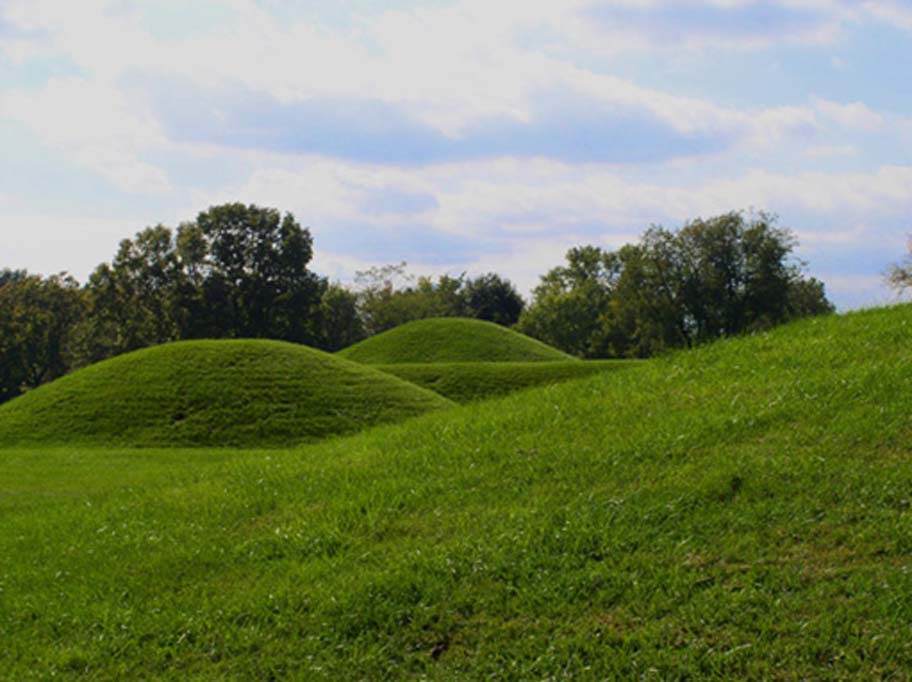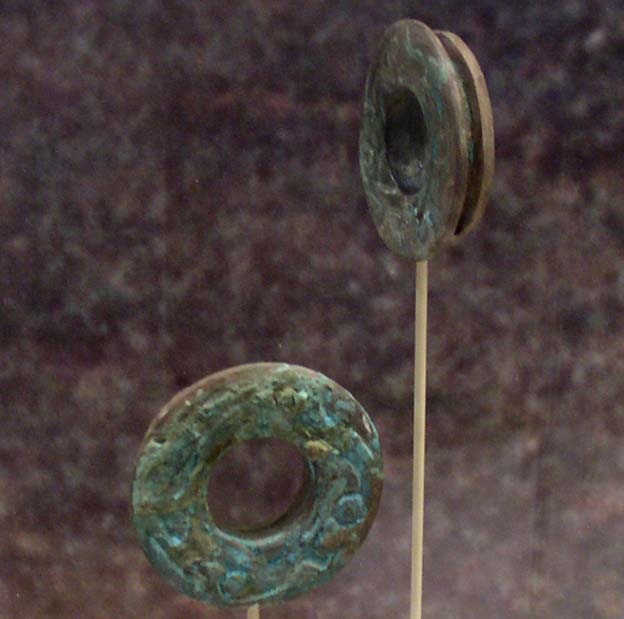
Bones of the Child, Tools of the Shaman: Ritual and Cosmology at the Hopewell Tunacunnhee Mounds
Near Trenton in Dade County, Georgia, is a place called Tunacunnhee, supposedly named after a Native American word meaning “Lookout Creek”. Located just a few hundred yards east of Lookout Creek is an archaeological site known as the Tunacunnhee Mound Group. The Tunacunnhee site consists of four earthen mounds featuring an outer layer or mantle of limestones. Located near the mounds are two prehistoric burial pits.
In the winter of 1973, the Ani-yun-wiya Society of amateur archaeologists of Tennessee and Georgia brought the site to the attention of professional archaeologists—following an incident during which Mound C was looted and six burials were destroyed. In fact, the site had been routinely vandalized for around 50 years by the time archaeologists arrived to perform excavations and research. At that point, the archaeologists realized that the decades of vandalism had somehow spared the most important features of the site! What the professional diggers found was considered “of extraordinary archaeological importance”, for the Tunacunnhee Mounds turned out to be the work of people affiliated with the ancient Hopewell Culture.

Hopewell mounds from the Mound City Group in Ohio (Herb Roe/CC BY-SA 3.0)
Elaborate Earthworks and Mounds
The Hopewell Culture is usually considered a prehistoric manifestation of the Ohio River Valley, dating to between 200 BC and around 450 AD, spanning the entire Middle Woodland time-period. Hopewell people in Ohio are famous among archaeological researchers for constructing incredibly elaborate earthworks centers and burial mounds, as well as helming an exchange system that reached from the Gulf Coast to Canada.
The tombs in Hopewellian Mounds in the Ohio Valley, Illinois, Michigan, Wisconsin, Indiana, and Iowa have been found to contain exotic artifacts of mica, shell, copper, and silver. The heartland of the Hopewell Culture is considered to be the Paint Creek—Scioto Valley confluence in Ross County, Ohio, where it evolved from the earlier Adena Culture. While the Midwestern and Northern manifestations of Hopewell are widely known, the same cannot be said for sites of the southern extension—such as Tunacunnhee.
The Tunacunnhee mounds ended up producing what at the time represented “the greatest variety and quantity of Hopewellian artifacts reported from the interior Southeast.” The tumuli described here are mounds A, C, D, and E—the remaining mounds from the site are not prehistoric.
- A Portrait of an Adena Female and Women in Adena Society
- A Glimpse into the Intuitive Medicine of the Native American Tradition
- The Hill of Sorcery: Mythology and Archaeology of the Tlachtga Barrow
- Foundations of Stone – Part I: Investigating the Megalithic Aspect of Late Archaic and Woodland Cultures in West Virginia
Mound A was found to consist almost entirely of limestone rocks and lacked an inner clay core like the remaining mounds. The limestone rocks used to build the mound weighed from two or three to up to 100 pounds. Beneath the mound was a central pit, which contained burned human remains, along with a Hopewellian copper earspool. A human mandible on the northern side of the mound was found near a strip of mica and a copper panpipe. Two further burials were found in the northern edge of Mound A, placed in rock-lined basins.

Copper ear spools from Spiro Mounds, Oklahoma - Northern Caddoan Mississippian archaeological site located in Eastern Oklahoma. Representational image. (Heironymous Rowe/CC BY-SA 3.0)




